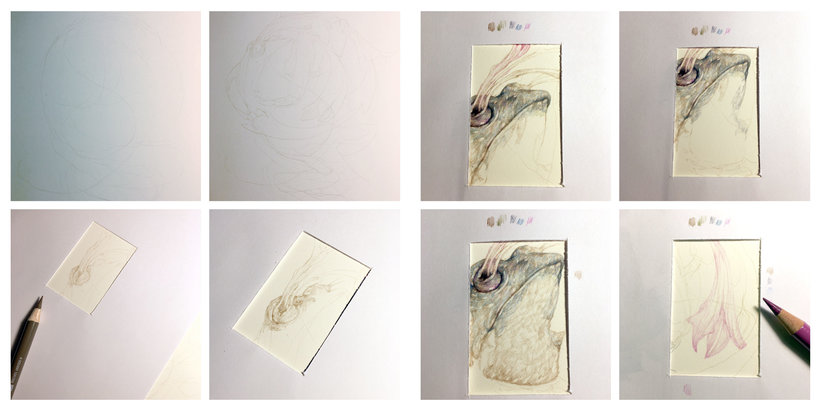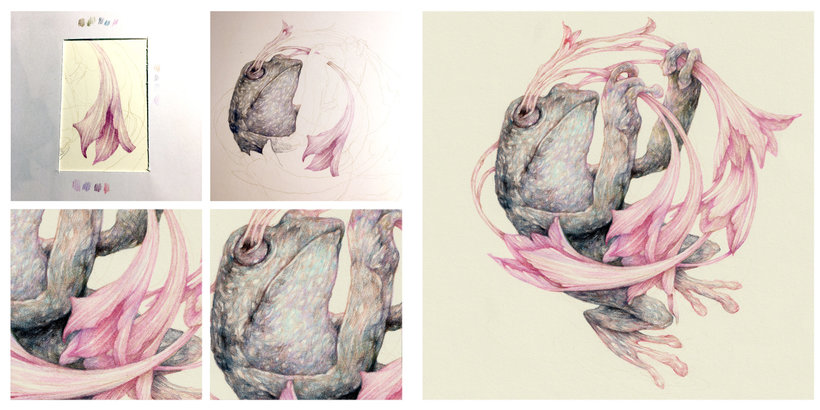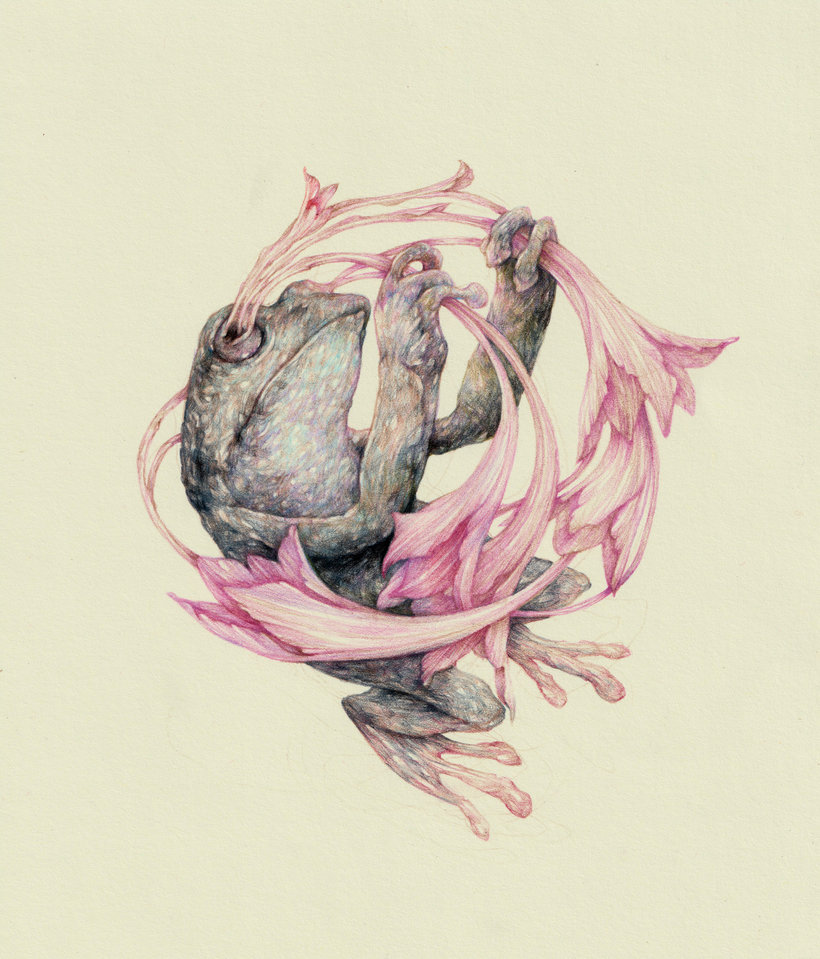Surrealist Illustration Inspired by Nature
Course final project
A course by Marco Mazzoni , Artist and Illustrator
About the final project for: Surrealist Illustration Inspired by Nature
Surrealist Illustration Inspired by Nature
“We’ve come to the end of this Domestika course. But before we say goodbye, I’d like to give you a few tips to help you with your final project. First of all, when you choose your materials, make sure that they illustrate what you want to say. For example, I chose moleskin paper because of its yellow colour since this makes my drawing look like from an encyclopedia. I chose dry coloured pencils and graphite pencils because I need the precision they provide. You can choose any type of paper and pencil and any colours, just remember that if you go for pink paper and use blue colour, for example, the result will be a bit purple. We have been working with animals because they are a great way to express complex ideas or feelings. They are rich in symbolism and the spectator will focus on the why more than the what. Remember that what makes the difference between a great artist and an artist is the concept behind the work. So choose an animal that speaks to you. I chose a frog with lilies coming out of its eye sockets and wrapping themselves around it because I wanted to express anxiety. I encourage you to find your own concept and the animal and pluses that best represents it. Before drawing your final project, it’s a good idea to make as many sketches as you can of your animal. When looking for references, choose photos of the whole animal in different positions and from different angles as well as close-ups. This will help you understand the anatomy and you’ll be able to create a pose that conveys the meaning you want to give your drawing. It’s useful to remove one minute from the clock with each sketch, that way you can get to the essence. Once you are confident sketching your animal, you can do the line drawing. Try to do fluid lines, even if they are not perfect. It is better to have these small mistakes than small unsure lines. Check your sketch constantly. Remember that nature has no straight lines, so play with curves and harmony. When colouring your drawing, to have tension, I recommend using the little window technique. Start with light colours and the most complicated parts, like the head. Remember to leave a tail of your previous window so you can blend the colours well. You can look at the entire drawing any time you need to.



Partial transcription of the video
“We have come to the end of this Domestika course. But before to say goodbye, I would like to give you some tips to help you with the final project. First of all, when you choose the material, you need to be sure that they illustrate what you want to say. For example, I chose a Moleskine paper because of its yellow color, and this allows me to prepare something similar to a drawing inside an encyclopedia. I chose dry colored pencil and graphite pencil because I need the precision they provide. You can choose any kind of pencils and papers and colors. Just remember that if you choose a pink p...”
This transcript is automatically generated, so it may contain mistakes.
Course summary for: Surrealist Illustration Inspired by Nature
-
Category
Illustration -
Areas
Artistic Drawing, Colored Pencil Drawing, Drawing, Naturalistic Illustration, Pencil Drawing, Traditional illustration

Marco Mazzoni
A course by Marco Mazzoni
Marco Mazzoni’s passion for drawing began at the age of five, when he would sketch on any piece of paper he could find while waiting for his father to finish work at the paper mill. Experimenting with the boundaries of fine art has been a passion of Marco’s since he was a student. His artwork tells a compelling story, drawing inspiration from Sardinian mysticism and the plants and animals he sketched as a child.
Marco’s recent achievements include working on an illustrated version of the Hans Christian Andersen classic Poucette for the French publishing house Albin Michel Jeunesse, where he takes the reader on a captivating journey through his use of color and texture. His work is also exhibited in galleries and museums across Europe and North America.
- 99% positive reviews (522)
- 12,250 students
- 15 lessons (2h 36m)
- 21 additional resources (8 files)
- Online and at your own pace
- Available on the app
- Audio: English, Spanish (Latam), French, Italian, Portuguese, Turkish
- Spanish · English · Portuguese · German · French · Italian · Polish · Dutch · Turkish
- Level: Beginner
- Unlimited access forever
Category
Areas



